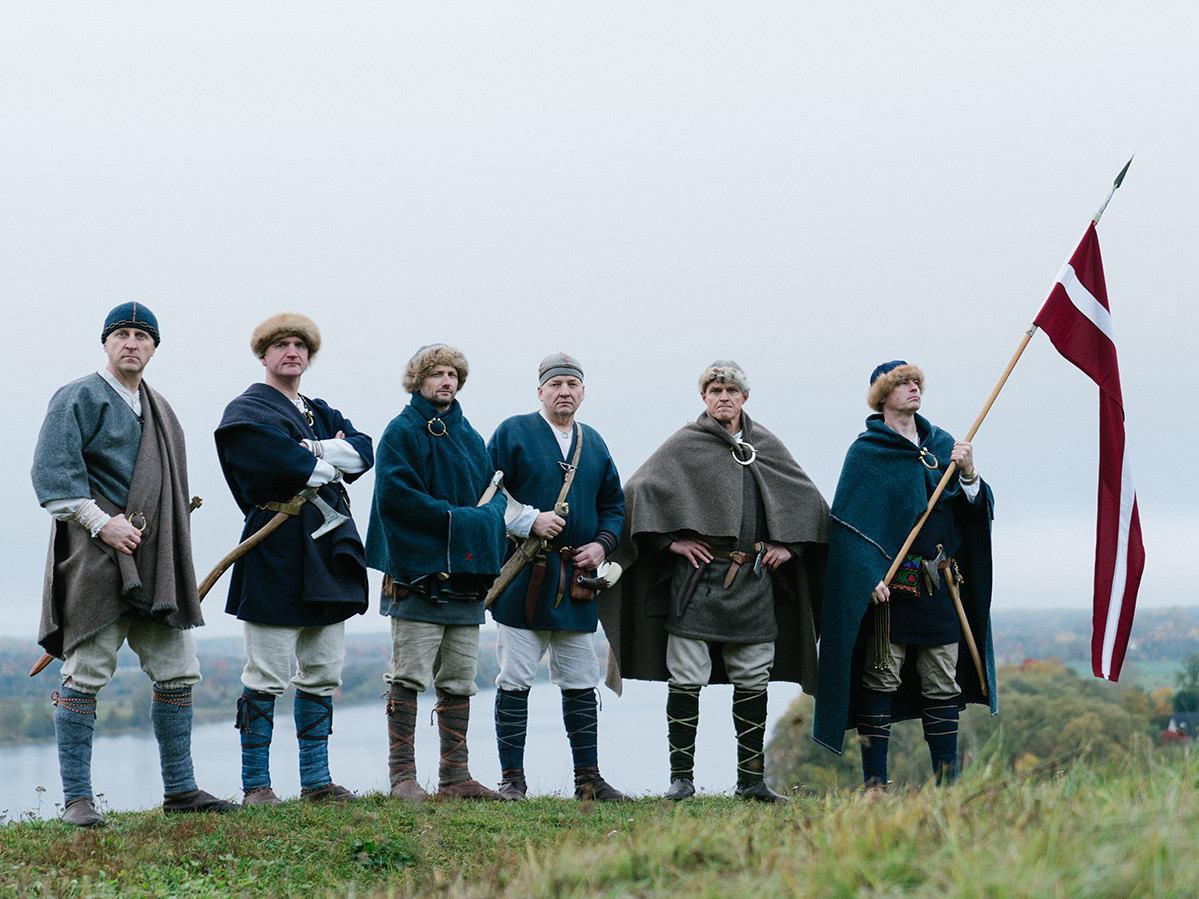
Vilki
Vilki are legendary interpreters of war songs. The group dedicates itself to the study and celebration of the Latvian soldier, learning about the songs and life of soldiers from different eras. The aesthetics of Vilki’s performances are shaped by the group members’ genuine respect and long-term contribution to their field of study, which includes reconstructing instruments based on ethnographic data and carefully selecting (and in many cases actually making) their attire and accessories, including adornments. The group’s repertoire includes folk songs from the feudal era, which contain a rich system of symbols, as well as the repertoire of 20th-century soldiers, with which Latvian national units, whose main motivation while in the crossfire between superpowers was always to defend their own homeland, kept up their morale while fighting in the armies of the Russian Empire, the USSR and Nazi Germany in the First and Second World Wars.
The members of Vilki have met and interviewed former Latvian Riflemen and soldiers of the Latvian Legion, as well as national partisans, to learn about their lives and document their stories and songs. The beginnings of the group can be traced back to the National Awakening and Latvian folklore movement of the early 1980s. It gained the name Vilki, meaning ‘wolves’, in November 5 1992 and released its first audio recording in 1997. Vilki have significantly enriched the ethnic music scene in Latvia with their active work. Through thematic programmes, recordings, high-quality performances, lectures and demonstrations at countless concerts, festivals, educational institutions and other events over the course of thirty years, they have not only provided a model for the interpretation of soldiers’ songs and the vitality of the image of the Latvian soldier today, but have also inspired the founding of new groups and a whole generation of historical reconstruction and ethnic music enthusiasts and contemporary Latvian soldiers.
Vilki’s programmes cover a wide range of themes appearing in men’s songs, including horses (which were once so important to a soldier), sea songs and tavern songs. The group’s members are Edgars Lipors, Andris Balcers, Uģis Treide, Raimonds Kundziņš, Gundars Kalniņš and Jānis Krūmiņš. When creating arrangements, they match the instrumentation to the style and era of the song, employing the kokle, wooden flute, monochord, bagpipes, horns, drums and accordion.
Lauma Bērza, 2022
photo Gatis Indrevics
